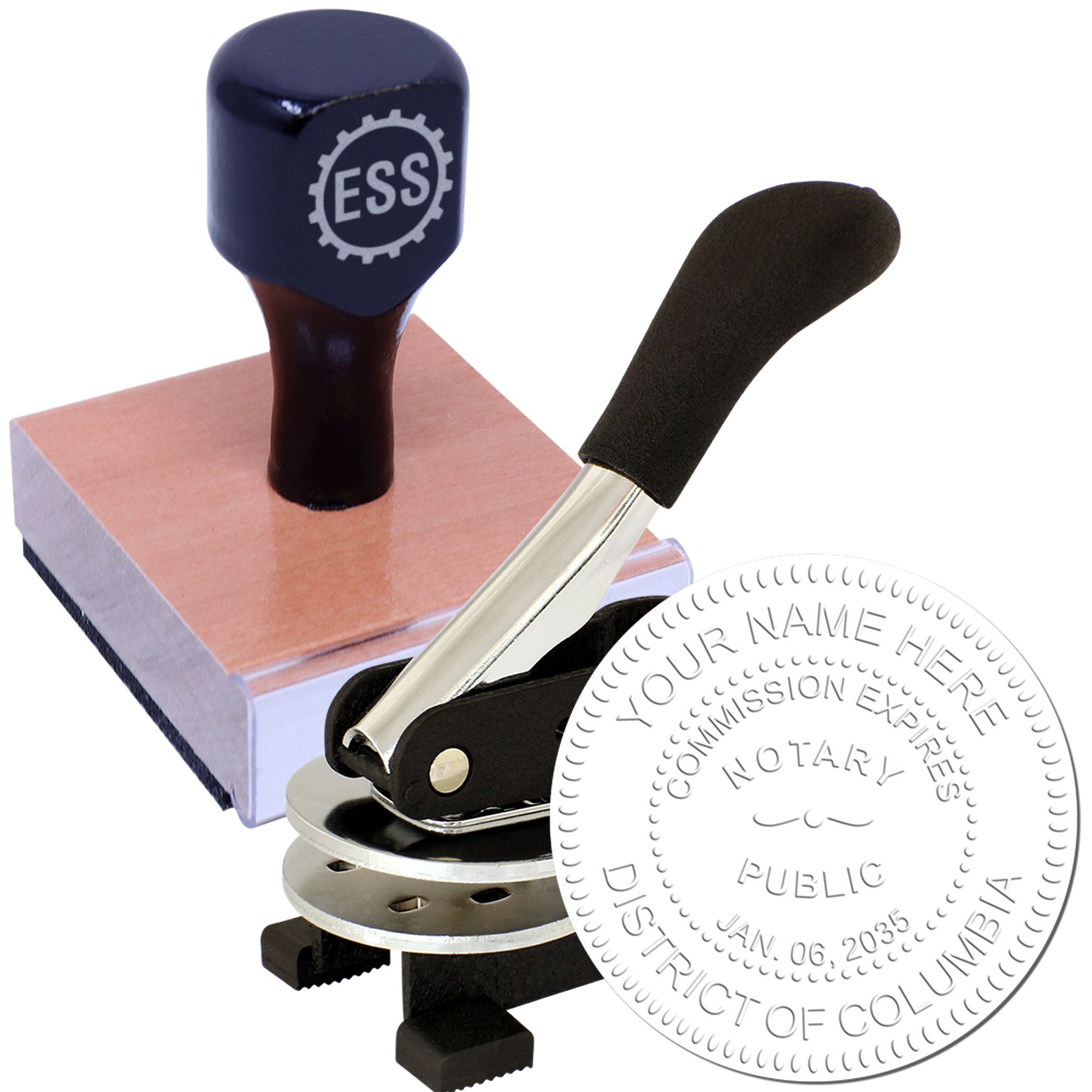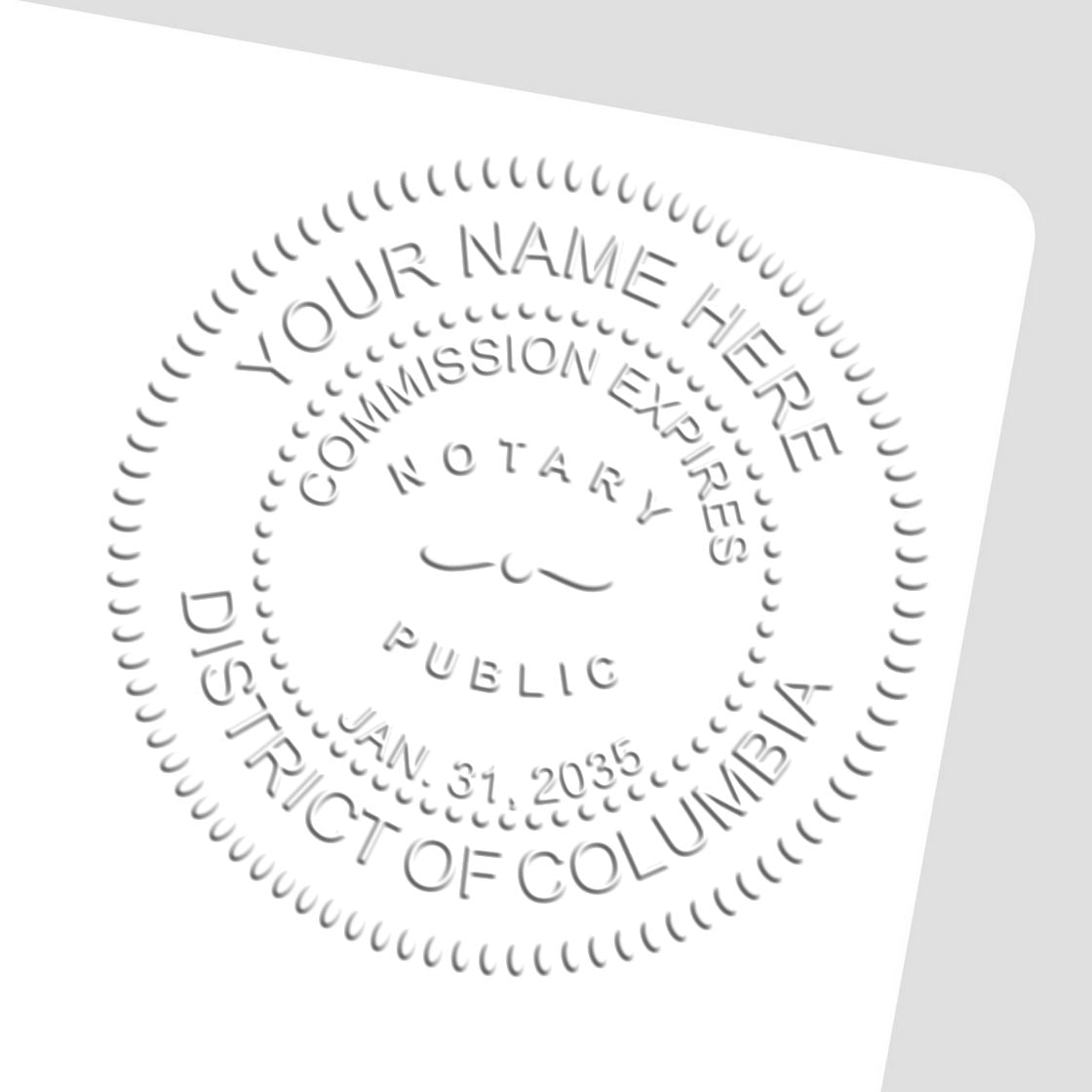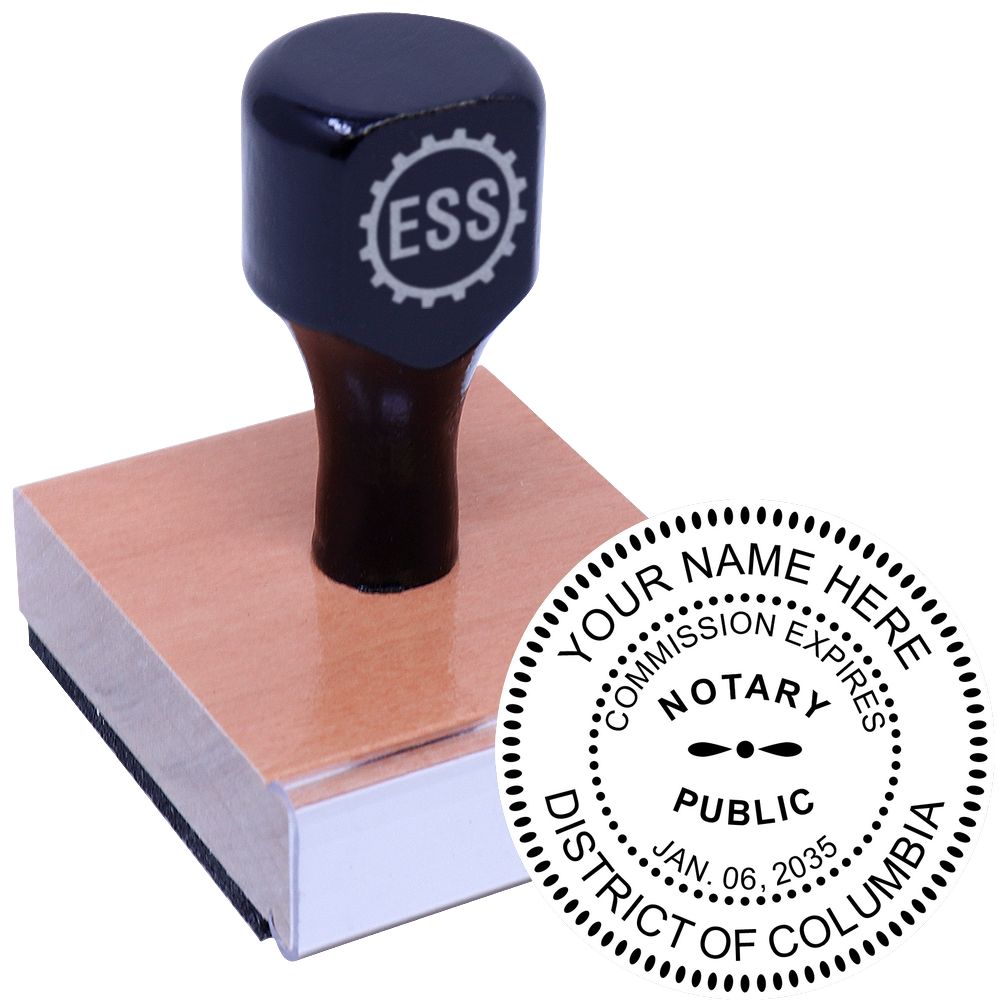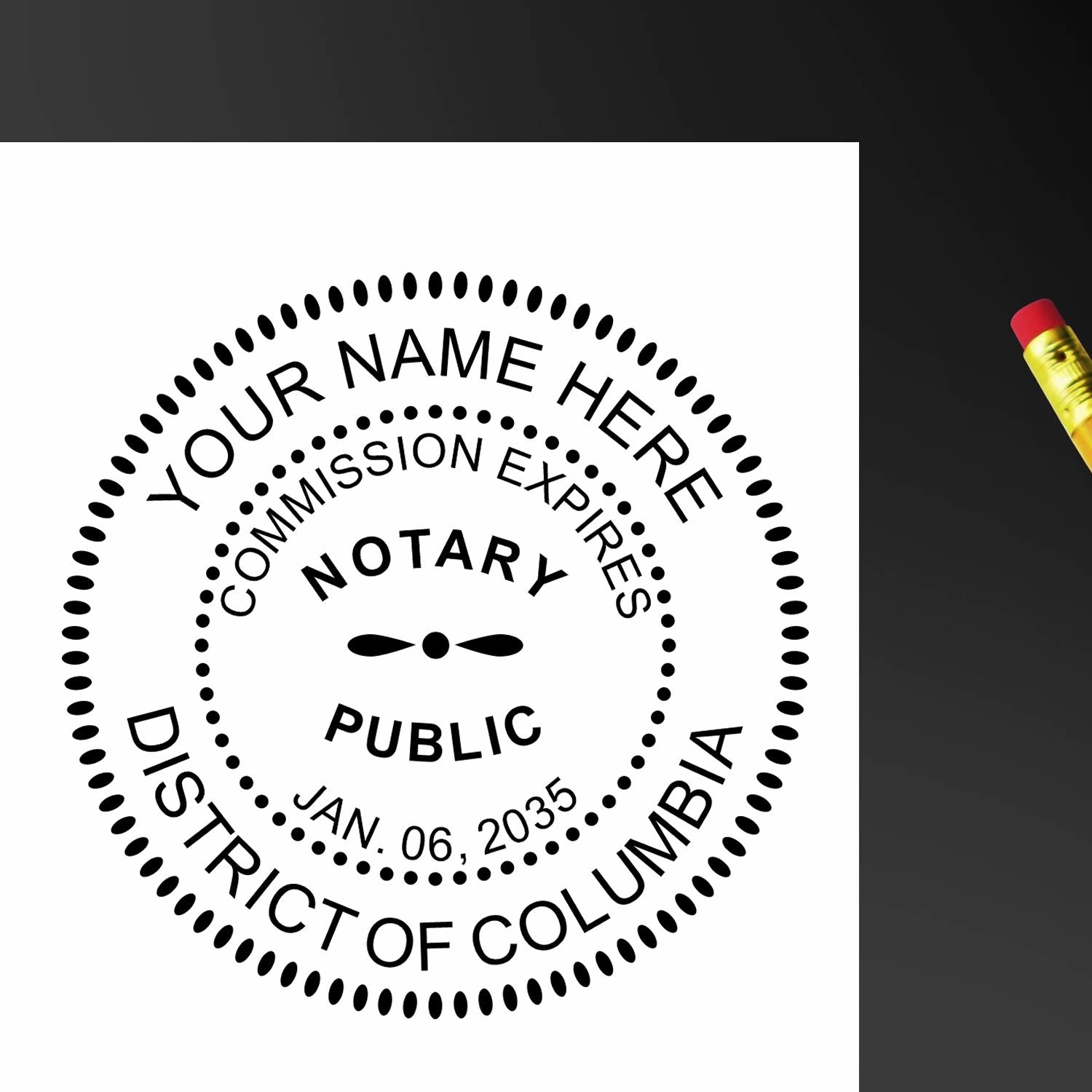Understand The Notary Seal
If you are a newly commissioned District of Columbia notary or simply looking to refresh your supplies, a notary seal for District of Columbia documents is one of the most important tools you’ll ever own. As a public official responsible for verifying signatures and preventing fraud, you know how crucial it is to have a reliable seal that meets the District’s legal requirements. In this post, you’ll learn what a notary seal is, how it works in DC, and what you should look for when purchasing or updating your notary essentials. By the time you’re done reading, you’ll feel more confident about selecting the best seal and using it correctly.
In the District, you’re not just stamping a piece of paper. You’re underscoring trust and authenticity, ensuring each notarized document is beyond dispute. Because so much responsibility rests on your seal, it helps to have a clear understanding of its components, significance, and care. Let’s break down everything, from the design features to long-term maintenance tips.
Check Required Features Of The Seal
To maintain professional standards, a notary seal must meet specific District of Columbia guidelines. Each jurisdiction has its own rules for design and usage, and DC is no exception. Before you invest in any tool, be sure your selection ticks these boxes:
Shape And Size
The traditional style is a circular or rectangular stamp, but check current regulations for exact measurements. Your seal shouldn’t be so large that it overwhelms your page, nor so small that any detail is unreadable.Wording And Layout
District rules typically require clear labeling of your name and the words “Notary Public.” You’ll also see references to “District of Columbia.” Some seals must include the expiration date of your commission too, but verify the current DC guidelines before finalizing any layout.Readable Ink Impression
Regardless of color choice, make sure the letters and numbers are crisp and visible on different types of paper. If the text bleeds or smudges, you may run into issues with document rejection.Durability
Your seal should last through many stamping sessions. Look for stamps made with solid materials that won’t crack or compress prematurely. Also, check that the inking mechanism or embosser handle feels sturdy and comfortable to use.
Know Why The Right Seal Matters
Choosing the right notary seal in DC isn’t just about rule-following; it also affects the quality of your work and your notary reputation. Any mismatch between what’s required and what’s on your seal can cause delays in signing processes or, worse, fully invalidate a document. That’s why paying attention to design details—or trusting a supplier who does—is key.
Investing in a high-quality seal helps in a few ways:
Compliance Confidence
When your seal follows District requirements to the letter, you’ll spend less time worrying about rejections due to technicalities.Professional Credibility
People rely on you for accurate, fraud-free signings. A crisp, well-crafted seal projects reliability, telling clients they’re in capable hands.Time-Saving Accuracy
A clear seal impression means fewer repeated stamps. You’ll breeze through signings without worrying about half-printed images or smudges.Document Acceptance
Courts, offices, and agencies throughout DC and beyond typically require well-defined seals. Make it easy on yourself by using one that leaves no ambiguity.
Explore Steps To Get Your Notary Seal
You know you need a seal, so how exactly do you acquire one in the District of Columbia? Here’s a quick rundown of the process:




Confirm Your Commission
Before ordering your seal, you must be officially commissioned by the District. You’ll typically have an authorization letter or certificate proving that status.Pick Your Style
Decide between an embosser (which creates a raised impression) or an ink stamp. Both can be valid, but each has pros and cons. Embossers often convey a more formal feel, while ink stamps can be quicker to use and easier to read in photocopies.Select A Trusted Vendor
Look for suppliers who specialize in notary products and have experience with District guidelines. Engineer Seal Stamps is a trusted leader offering District of Columbia Notary Supplies as well as notary seals and stamps that fully comply with the rules. With over 60 years of experience, they’ve refined their products and services to match exactly what DC notaries need.Provide Required Details
You’ll need to supply your commissioned name, your official notary title, and any relevant commission expiration date. Make sure these details are accurate to avoid reprints.Finalize And Verify
Once your seal arrives, double-check that every piece of info is correct. Test the impression on a spare piece of paper to confirm crispness and clarity.
Shop For DC Notary Supplies Wisely
When you’re in the market for notary essentials—seals, stamps, ink pads, or record-keeping tools—it helps to have one reliable source. That’s where Engineer Seal Stamps comes in. They offer a broad range of District of Columbia Notary Supplies to streamline your notary work. Beyond the seal itself, you might want to include a notary journal (a ledger of all your notarial acts) and a reliable ink refill. If you’re pressed for time, a one-stop shop for these items drastically simplifies your shopping experience.
Free Digital Stamp With Purchase
When you order your physical seal from Engineer Seal Stamps, you also receive a free digital stamp. This comes in handy for electronic notarizations, or simply as a quick way to put your mark on PDF files that need a notary’s acknowledgment (where permitted by law).Quick Service
Because your documents can’t wait, you’ll appreciate the rapid turnaround times. In many cases, your seal can arrive sooner than you’d expect, letting you ramp up business fast.Over 60 Years Of Expertise
A deep heritage in the stamping and embossing world means they already understand common pitfalls. They know how to ensure your seal is crystal clear and meets every detail of District standards.








You can browse more specialized products like notary record books or replacement ink pads at District of Columbia Notary Supplies. Whether you perform one notarization per week or several per day, tailored support will save your time and keep you compliant.
Maintain And Protect Your Seal
A well-maintained seal is essential for consistently professional results. While the materials are built for long life, proper care extends their usefulness even further. Adding a simple maintenance routine to your notary workflow helps guarantee that every stamp remains sharp and valid.
Consider these quick tips:
Store In A Dry Spot
Keep your seal or stamp in a cool, dry area. Humidity and direct sunlight can degrade inking surfaces or warp certain materials, potentially distorting your impression.Clean The Surface Regularly
If you use an ink stamp, gently wipe away any residual ink from the rubber after each use. Use a soft cloth that won’t scratch the impression surface. If you have an embosser, periodically check the die and clamp mechanism for dust or paper particles.Replace Ink Or Pads
Low ink levels lead to faint or partial impressions. Once you see uneven coloring, it’s time for a refill or a new pad. Don’t wait until the very last minute—keep a spare in your supplies kit.Secure Against Misuse
Because your notary seal is legally binding, keep it in a locked drawer or safe. Unauthorized use could place you at risk for liability issues, so never let it circulate freely.
Avoid Common Pitfalls
Even the most careful notary can run into challenges from time to time. Luckily, many common issues have quick fixes or can be prevented with a bit of foresight.
Illegible Or Smudged Stamps
If your seal impression appears blurry or incomplete, first check your ink level. A fresh ink pad or refill often restores clarity. Also, practice steady hand pressure to ensure even contact with the paper.Incorrect Commission Dates
You might accidentally order a seal with outdated or misspelled data. Double-check your official notary documentation before finalizing the purchase. If you spot a mistake upon delivery, work quickly with your vendor to correct it.Damaged Embosser Plates
Embosser components can get dented if dropped, leading to uneven impressions. If you notice a tilt or mismatch in the embossed outline, contact the manufacturer for repair or replacement.Misplacement Of Seal On Documents
Stamping over text or too close to the margin can obscure writing and invalidate your efforts. Always leave enough white space so the seal is fully visible and doesn’t overlap vital information.Neglecting Regular Maintenance
Seals, like most tools, need some upkeep. Delaying maintenance or ignoring early signs of wear leads to bigger problems down the road.
By steering clear of pitfalls, you’ll keep your operations running smoothly, save on unnecessary expenses, and maintain impeccable professionalism.
Keep The Process Simple
At the end of the day, your seal should empower you to do your job quickly and accurately. Once you’ve got a handle on the basics—choosing the right design, verifying compliance, and adopting a simple maintenance routine—you’ll discover that being a District of Columbia notary is seamless. Whether you’re helping clients finalize real estate deeds, power of attorney documents, or business agreements, a dependable seal saves you from second-guesses and last-minute scrambles.
And if you’re ever unsure which seal format to pick or how to meet the latest regulations, remember that Engineer Seal Stamps is ready to assist. Their thorough knowledge, combined with a wide product selection, ensures you get exactly what you need. Plus, their free digital stamp with every order might well become your new favorite convenience for certain electronic tasks.
Key Takeaways And Next Steps
- A proper notary seal for District of Columbia documents is crucial for authenticity, trustworthiness, and compliance.
- Always verify your details—name, commission expiration, and DC wording—to avoid rejections or invalid documents.
- Shop from a reputable source like Engineer Seal Stamps when you want quick service and a quality product that meets District requirements.
- Maintain your seal by keeping it clean, stocked with ink, and secured from unauthorized use.
- A little care now prevents headaches later, preserving your professional reputation and saving time.
By making these tips part of your routine, you’ll always produce crisp, credible notary seals. Now let’s tackle a few frequently asked questions to wrap things up.
Frequently Asked Questions
Do I Need A Notary Seal In The District Of Columbia If I Have A Commission?
Yes, you do. Once commissioned, you must use an official seal that meets the District’s guidelines. This is vital for authenticating the documents you notarize.How Quickly Can I Get My Notary Seal?
Shipping and production times can vary, but many suppliers offer expedited services. Engineer Seal Stamps is known for quick turnaround if you need your seal fast.Does The Seal Have To Include My Commission Expiration Date?
Regulations can change, so always check DC’s official guidelines. Often, the commission expiration date is required, but some states or jurisdictions may not mandate it. Verify the info before placing your order.What’s The Difference Between A Stamp And An Embosser?
An ink stamp uses ink to print your notary information directly on the page. An embosser creates a raised impression. Both are valid, but ink stamps are typically easier to photocopy. Embossers, however, can look more formal. It’s largely a matter of preference and any specific request from the signer or receiving entity.
Feel free to reach out if you have more questions or need advice on specific District of Columbia notary concerns. You’re taking on a significant public duty—one that deserves the best tools available. By selecting the right notary seal and keeping it in top shape, you’ll stand out as a dependable notary whose documents clients can trust.



































